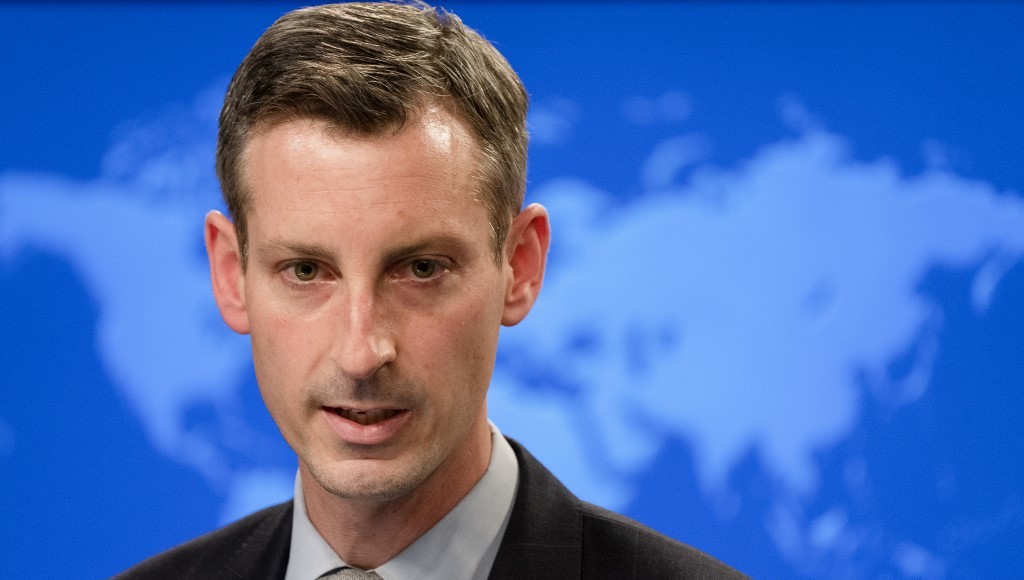The spokesperson for the US Department of State has warned that countries should avoid transactions with Russia’s defense sector or risk facing sanctions while adopting a cautious stance on claims that Turkey will take delivery of a second Russian S-400 air defense system.
Russian news agency TASS reported on Tuesday that a contract for the delivery of the second S-400 air defense system has been signed with Turkey. Citing the head of Russia’s Federal Service for Military-Technical Cooperation (FSVTS), TASS said the contract also involved local production of some of the system’s components.
However, a Turkish defense official who spoke to Reuters on Tuesday denied claims about a new contract, saying the original contract Turkey signed with Russia for the purchase of the S-400 system already included two batteries.
“The purchase of a second batch was included in the original plan and the related contract,” the Turkish defense official said.
When asked about the reports about the second S-400 delivery to Turkey, US Department of State Spokesperson Ned Price said during a press briefing in Washington, D.C., on Tuesday: “I think there is some – at least some question or complexity regarding this issue. We’ve seen these reports that first emerged in TASS. We’re not aware of any new developments on this matter. Our position on Turkey’s purchase of the S-400 is well known, and we’d refer you to the Turkish government to speak to their defense procurement plans.”
Price said the point the United States has consistently made across the board is that “Russia’s brutal and unjustified war against Ukraine makes it vital, now more than ever in some ways, that all countries avoid transactions with Russia’s defense sector. It puts them at risk of sanctions.”
Washington imposed sanctions in December 2020 on Turkey’s military procurement agency for its purchase of the system under the Countering America’s Adversaries Through Sanctions Act, or CAATSA, which mandates penalties for transactions deemed harmful to US interests.
Despite warnings from the United States and other NATO allies, Turkish President Recep Tayyip Erdoğan brokered a deal worth $2.5 billion with Russian President Vladimir Putin for the S-400 missile system in 2017.
Turkey started taking delivery of the first S-400s in July 2019 despite Washington’s warnings and the threat of US sanctions. In response, Washington removed Turkey from the F-35 Joint Strike Fighter program, in which Ankara was a manufacturer and a buyer. Turkey has not yet used the missile system since its purchase.
The S-400, a mobile surface-to-air missile system, could pose a risk to the NATO alliance as well as to the F-35, America’s most expensive weapons platform, according to Turkey’s Western allies.
To another question asking whether the possible sale of F-16 fighter jets to Turkey would be affected if Turkey moves forward with a second S-400 system, Price said they will have to wait and see what happens.
“…we are not aware of any new developments on this matter and so would refer you to Turkish authorities for the time being to speak to their plans,” he told the journalist asking the question.
Turkey next set out to buy new F-16s, as well as obtaining upgrades for its existing, but outdated, fleet of the same planes.
However, that deal is also on hold, and there has been speculation that Turkey was holding up the NATO accession bids of Sweden and Finland to try and leverage concessions.
Meanwhile, a technical team from the Turkish Defense Ministry travelled to Washington on Monday to have talks on the sale of F-16 fighter jets to Turkey.
The ministry tweeted on Monday that a technical team from the ministry travelled to the United States to lobby for the acquisition of new F-16s and modernization kits for its existing fleet as soon as possible upon an invitation from the United States.

